Just for the benefit of anyone who hasn't seen this yet:
Well said, that man.
Viewing: Blog Posts Tagged with: jack russell, Most Recent at Top [Help]
Results 26 - 43 of 43
Blog: An Awfully Big Blog Adventure (Login to Add to MyJacketFlap)
JacketFlap tags: Mitch Benn, John Dougherty, cutbacks, culture, BBC, Add a tag
Blog: An Awfully Big Blog Adventure (Login to Add to MyJacketFlap)
JacketFlap tags: John Dougherty, making up stories, Chernobyl Children's Project, Add a tag
This summer, we had visitors. Two girls from Belarus came to stay with us, courtesy of the Chernobyl Children’s Project.
It’s a strange experience, being unable to communicate verbally with children who are, for a fortnight, almost entirely dependent on you, but neither of our visitors spoke any English and my Russian is non-existent, so we had to make do; and by and large we did very well. Our guests learned to ask “Mehgeddown” before leaving the table, and to say “pleeeeease” in the proper way beloved of generations of British children (stretching the vowels out to improbable lengths, with a beseeching rise and fall in pitch in the middle). We learned the Russian for “orange”, “video” and “prawns”. And we got very good at miming and drawing explanatory stick-people pictures.
What was strangest about the language barrier, though - and I say this as someone to whom smalltalk doesn’t come naturally - was the consequent inability to find out anything significant about these children who were, for two weeks, part of our family. We learned - we think - that one lives at home with mother, two grandmothers, and another adult female whom we assume to be an aunt; the other lives with mother, father, and one grandmother. And that was it.
Perhaps it was because I felt I ought to have learned more that, when I took them to the airport and bid them a genuinely tearful goodbye, I found myself making up the next bit. One of the girls, I reckoned, was going home to a family who had missed her desperately and who would, as far as they were able, spoil her over the next couple of days. They would listen to everything she had to tell them about her holiday, pore over the photos we had given her, and create in their own imaginations details about us and our life in Gloucestershire.
The other, I thought, would probably be welcomed warmly enough, but without the same level of fuss and attention. By the time she got home, talk would have turned to other things, and she would be expected to be quiet - would perhaps even be almost forgotten, except as a series of tasks to be attended to. She was, I imagined, returning to a life comprising a certain level of neglect. Having watched her open up over her stay, turning from a child who stood quietly on the edge of things to one who threw herself loudly towards the centre, I felt, at the airport, that in a matter of minutes I saw precisely the reverse happen. I worried about her; and, if I'm honest, I'm still worrying.
Of course, I have no way of knowing whether this is true. Effectively, I’ve made it up, and for all I know, I’ve got it completely wrong. But it does occur to me that, to a greater or lesser extent, we all fictionalise other people. We make assumptions about them and about their lives based on very little evidence. Sometimes we’re aware that we’re doing it; sometimes we’re not.
It’s a useful attribute for a writer, of course. When a new character suddenly appears on the page before us, we have to make their acquaintance immediately; we have to know who they are so that we can tell what they’re going to do next. Is this character good, bad, morally ambiguous? Brave or cowardly? We need to make assumptions about their background, take shortcuts in getting to know them. The difference, of course, is that whatever we decide about our own characters, we know we’re right. When we make up stories about real people, we're only guessing.
John's website
Blog: An Awfully Big Blog Adventure (Login to Add to MyJacketFlap)
JacketFlap tags: John Dougherty, Lord of the Flies, About a Boy, Cat’s Eye, A Tale Etched in Blood and Hard Black Pencil, children in adult fiction, To Kill a Mockingbird, Add a tag
 Some people do find children difficult, don’t they?
Some people do find children difficult, don’t they?
And just as there are those who find children hard to relate to in real life, there are those who find them hard to relate to in fiction, and who therefore assume that any book with a child protagonist must ipso facto have been written with a readership of children in mind. This attitude generally goes hand-in-hand with the sort of assumptions about the merits of children’s fiction that makes those of us who write it rather cross.
Thankfully, there are also authors on the other side of the Great Fictional Divide who understand that childhood (in which, for the purposes of this piece, I include teenagehood as well) isn’t just a period of waiting to turn into a real person. So, as my contribution to the Awfully Big Second Anniversary Celebrations, here - in no particular order - are five of my favourite depictions of children and childhood in novels written for proper grown-ups:
1. To Kill a Mockingbird, by Harper Lee When I was a small child, I was told by my classmates that the house at the school gates was The Witch’s House. I remember going fearfully but excitedly up to it, one day after school, with one of my friends; and seeing, just as we reached it, an old woman’s face at the window.
When I was a small child, I was told by my classmates that the house at the school gates was The Witch’s House. I remember going fearfully but excitedly up to it, one day after school, with one of my friends; and seeing, just as we reached it, an old woman’s face at the window.
We screamed and ran. We were afraid; but it was a safe fear - a fear of something we had created in our minds and fixed to someone else’s home. I don’t know why children do this - perhaps in order to practice dealing with genuinely scary things when we’re older - but in the Radley house, Harper Lee captures this sort of childhood totem perfectly; and in Scout, Jem and Dill, she creates three very real children, who play and negotiate and slowly learn about justice and injustice and the complexities of the adult world entirely convincingly.
To Kill a Mockingbird is fifty this year, and hasn’t aged a bit.
2. About a Boy, by Nick Hornby We all knew a Marcus at school, didn’t we? Except, of course, for those of us who were Marcuses - bright in some ways and yet so naive in others; misfits who desperately needed to be taken under someone else’s wing.
We all knew a Marcus at school, didn’t we? Except, of course, for those of us who were Marcuses - bright in some ways and yet so naive in others; misfits who desperately needed to be taken under someone else’s wing.
It’s Hornby’s masterstroke, of course, that the wing in this case belongs to someone who bridges the gap between the child and adult states - a grown-up who’s never actually had to grow up.
About a Boy is a wonderful comedy of embarrassment, with a lot of unsentimental warmth and down-to-earth wisdom about families and growing up; and with two very real boys of vastly different ages at
Blog: An Awfully Big Blog Adventure (Login to Add to MyJacketFlap)
JacketFlap tags: Children's Books, Peter Pan, John Dougherty, suitability, Add a tag
Imagine pitching the following story, aimed at the pre-teen market, to a publisher:
A girl and her two brothers, left alone while their parents are at a party, are enticed from their home and taken to a faraway island by an amoral and egocentric stranger. No sooner do they arrive than the stranger’s accomplice attempts to have the girl murdered by enticing another child to shoot her.
The girl survives, and she and her brothers join the community there - a community entirely made up of abandoned children (of whom the stranger is the leader), surviving without adult assistance. After many adventures the girl and her brothers decide to return home, but before they can do so the entire community is captured by a band of criminals.
The criminals attempt to murder the children, but the tables are turned, and the children slaughter the entire gang, stabbing most of them to death one by one. The girl and her brothers return home.
If all this isn’t enough to put the publisher off, add in the descriptions of the parents at home, lamenting the loss of their children, and follow it with the eventual death of the kind and beautiful mother. And, just to confuse them, throw in a fairy or two.
Now: is any publishing house in their right mind, in the present day and age, going to publish such a story? As you might have gathered, I’ve just finished reading Peter Pan to my kids. My goodness, but it’s dark.
As you might have gathered, I’ve just finished reading Peter Pan to my kids. My goodness, but it’s dark.
Not unremittingly - far from it. There’s a lot of humour: some of it poignant, some of it merely well-observed. But there are enough threads of darkness running through it to terrify any modern editor looking for a potential best-seller for the young reader.
Not only that, but the language is not always easy. On a single page (263, if you’re interested) we encounter a bountiful selection of words including: industrious, essence, commonplace, pathetic, infinitely, fount, unconscious, bulwarks, miasma, prone, mechanically, unfathomable, tabernacle, bellied, elation, gait, sombre, profoundly, dejected.
What’s my point? I’m not entirely sure; except perhaps to say that it’s easy to set rules for what will and will not do in children’s fiction - and that in doing so, you may miss out on a classic.
Blog: An Awfully Big Blog Adventure (Login to Add to MyJacketFlap)
JacketFlap tags: Children's Books, series fiction, John Dougherty, Add a tag
I like series fiction. Or, at least, I like the series fiction I like: Discworld; Jeeves and Wooster; Narnia; The Church Mice; The Sandman... It’s a lovely feeling when, browsing the shelves in the library, I come across an unfamiliar volume of a well-loved series. And I like writing sequels. Zeus on the Loose and Zeus to the Rescue will next year be joined by Zeus Sorts It Out, and I’m currently working on a couple more ideas about the egocentric deity and his long-suffering high priest. Jack Slater, Monster Investigator returned last year in Jack Slater and the Whisper of Doom. Bansi O’Hara and the Bloodline Prophecy is soon to be followed by Bansi O’Hara and the Edges of Hallowe’en.
And I like writing sequels. Zeus on the Loose and Zeus to the Rescue will next year be joined by Zeus Sorts It Out, and I’m currently working on a couple more ideas about the egocentric deity and his long-suffering high priest. Jack Slater, Monster Investigator returned last year in Jack Slater and the Whisper of Doom. Bansi O’Hara and the Bloodline Prophecy is soon to be followed by Bansi O’Hara and the Edges of Hallowe’en.
I would, however, hate it if someone decreed that from now on series fiction was the only legitimate form and no-one was allowed to read, write or publish anything else. Just imagine a world in which such a law had always existed: a world in which Hardy’s The Return of the Native came between The Native and The Native Returns Again; in which Watership Down was followed by Watership Up and Watership Left A Bit; in which Treasure Island was but one book in the Treasure Archipelago series. A world, in other words, which had no room for the stand-alone novel.
Of course, that would be ridiculous.
And yet... it would appear that something not a million miles away from this is happening in children’s books, or at least in books aimed at the newly-confident reader. It seems as if, no matter what I submit at the moment, the question comes back: “But does it have series potential?” A quick glance at my ‘recent rejections’ file comes up with this sort of thing:
“We all enjoyed reading this... The writing is really good... pitched at the right age range... very much like Roald Dahl... the main problem was that we can't see this working well over a series”
“utterly charming... truly very funny... loved the concept...What we’ve had a little difficulty seeing past is how to truly make this into a series.”
This can’t be right. I know there are economic imperatives to consider, but surely there are also cultural imperatives? Should we be teaching newly confident readers that all good things come ready-branded; that no story is self-contained; that one is never enough? Can’t we make children into readers without also turning them into consumers?
Worse, I suspect that for certain publishers the ideal is a series which can be pitched in a maximum of three words, and which combines two concepts from a limited and familiar range. Superhero Pirates! Football-playing Dinosaurs! Vampire Fairies! Ponies in Space! Better yet, slap some vapid c
Blog: An Awfully Big Blog Adventure (Login to Add to MyJacketFlap)
JacketFlap tags: fear of finishing, the perfect job, writing, procrastination, John Dougherty, daydreaming, Add a tag
Ask some people to define the perfect job, and they’ll start by describing the salary. Ask others, and they’ll begin with working conditions, or colleagues, or sense of purpose, or flexibility. There are as many perfect jobs as there are types of people; and there are as many types of people as there are... well, people, probably.
So to anyone who’s just dropped by for some careers advice: sorry. Can’t help. Whatever your skill-set, you’d be better going and asking a careers advisor. No, what I’m musing about today is why writing is my perfect job - or, at least, the perfect job for someone with my particular well-defined and carefully honed flaw-set. For a start, I’m a procrastinator; and I’d imagine there are very few jobs which suit the procrastinator quite so well as writing. When you’re a writer, you see, you start work on a story long before you actually realise you’ve started work on a story. By the time you get round to thinking it might be time to procrastinate, it’s too late. You’ve started work.
For a start, I’m a procrastinator; and I’d imagine there are very few jobs which suit the procrastinator quite so well as writing. When you’re a writer, you see, you start work on a story long before you actually realise you’ve started work on a story. By the time you get round to thinking it might be time to procrastinate, it’s too late. You’ve started work.
Procrastinators - assuming I’m typical of the breed, of course - are daydreamers; and there’s no telling which bits of your daydreams may end up sparking off a story, or changing its course, or providing a resolution, without your having the slightest intention of doing any work. The characters form, the plot builds up, the dialogue begins to whisper, all inside your head and long before you ever consider putting pen to paper or finger to keyboard. It happens while you thought you were avoiding making a shopping list, or doing the washing-up, or paying the bills. And once the story has firmly taken root in your imagination, and is expanding by the day, well, you might as well sit down and tap out a few ideas. It’s not as if you’re actually going to do the whole thing. Not at once, anyway.
And then: well, disappearing down to your shed and writing the next bit is a great way to avoid all those other tasks you’d otherwise have to be doing, isn’t it?
So much for procrastination. But I also suffer from its equal and opposite flaw: a fear of finishing. A dreadful drawback in most spheres of work, I’m sure you’ll agree; but the thing about writing is, you never really finish. Not properly.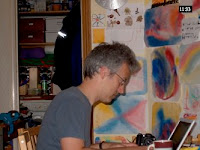 You get to the bit where you write the closing sentence, of course; but you never know if that really is the closing sentence. No, you send the MS off to your editor safe in the knowledge that it really isn’t finished yet; that she’ll get back to you sooner or later (later if you have a procrastinating editor who should really have been a writer but never quite got round to it) with lots of helpful suggestions about how to improve it. Finishing the first draft really isn’t finishing the story at all, because there’ll be lots more to do.
You get to the bit where you write the closing sentence, of course; but you never know if that really is the closing sentence. No, you send the MS off to your editor safe in the knowledge that it really isn’t finished yet; that she’ll get back to you sooner or later (later if you have a procrastinating editor who should really have been a writer but never quite got round to it) with lots of helpful suggestions about how to improve it. Finishing the first draft really isn’t finishing the story at all, because there’ll be lots more to do.
Even when you’ve finished the rewrites, in all probability there’ll be more rewrites, and maybe even more. At no point do you send back the re-re-re-re-redrafted work knowing that that’s it, and it’s al
Blog: An Awfully Big Blog Adventure (Login to Add to MyJacketFlap)
JacketFlap tags: injuries, John Dougherty, internal writing, Katie Fforde, Anne Rooney, the writer's view of the world, broken bones, Add a tag
Please forgive me if this posting takes you longer to read than usual. That'll be because I'm typing it very slowly.
The reason for that is that I'm only using one hand.
I'm not telling you this just to get a bit of sympathy, although quite frankly that would be nice. Rather, I thought I'd use this opportunity to share with you an opinion that just about everybody - including me - has voiced in order to cheer me up:
"Oh, well, you can write about it in your next book."
To be fair, not everyone has assumed it'll be the next one: only that the experience will be useful source material at some point. But it is intriguing, this general assumption that when a bad thing happens to me I'm likely to write about it.
Equally intriguing, by the way, is that nobody's mentioned money. There's no sense of, "Shame you broke your wrist, but you'll get a few quid out of it when you put it in a story." The feeling seems to be that the writing itself will be the silver lining, a compensation in its own right.
I don't know if I will ever write about this sort of injury in a story; but it's noteworthy that - while it has been and continues to be painful and inconvenient - more than anything, I've found it interesting. It's all an experience: the moment of sharp, sudden, numbingly wrong pain; the first sight of the swollen question-mark of my once exclamation-straight wrist; the jarring pangs as every speed-bump takes me ruthlessly closer to hospital; the strange blurring of the world as the morphine takes effect; the peculiar internal disassociation as the doctor and orderly take hold of an end each of my twisted forearm and pull it back into shape; the hot rush of blood back into my veins after the bier block... I've lived it all, but I've also noticed it all, and noticed it in a way I don't think I would have done, once upon a time before my working life was taken up with stories.
So perhaps Anne Rooney was right, when she said in Saturday's entry that "Writing is our way of making sense of the world" - or perhaps writing teaches us to make sense of the world. Whatever the truth of it, I'm going to leave you with a question posed to me in sympathy on Sunday evening, by the lovely Katie Fforde:
How do people who don't write deal with it, when terrible things happen to them?
John's website is at www.visitingauthor.com
Blog: An Awfully Big Blog Adventure (Login to Add to MyJacketFlap)
JacketFlap tags: humour, John Dougherty, Andy Stanton, writing, comedy, funny books, The Office, Anthony McGowan, Mr Gum, Kaye Umansky, Add a tag
 Tempting as it is to press the enter key 20 times and then type ‘timing’, I’m not going to. Nor, to be fair, am I going to reveal the secret of all comedy. If I knew that, then instead of sitting at my computer typing I’d be relaxing by a sun-soaked lagoon with my wife, our children, and their incredibly expensive home-schooling experts, while the butler serves us the appropriate meal for whichever time zone I’d eventually have settled for.
Tempting as it is to press the enter key 20 times and then type ‘timing’, I’m not going to. Nor, to be fair, am I going to reveal the secret of all comedy. If I knew that, then instead of sitting at my computer typing I’d be relaxing by a sun-soaked lagoon with my wife, our children, and their incredibly expensive home-schooling experts, while the butler serves us the appropriate meal for whichever time zone I’d eventually have settled for.
Rather, I want to do some musing about the art of writing funny books for children. And it is an art - and a craft, too. I do get the impression that there are some people who think it’s easy; and reading some of the “funny” children’s books currently on the market, I can see why. But then, looking at some of the “comedy” written or broadcast for adults, I could see why anyone might think that’s easy, too; and it’s not. Quite clearly it’s not, or the overall standard would be a lot higher.
Oooh, I’m sounding like a grumpy old man today. Sorry. And I hope nobody thinks I’m saying all, or even most, funny books for kids aren’t funny, because I’m not. But there are some right shockers out there.
In my opinion. And there, of course, lies the first secret of comedy: finding the right audience. Because - up to a point, at least - comedy really is a matter of both taste and perspective. I loved The Office partly because it seemed to me horribly close to drama-documentary; I’ve known people with as little self-awareness as David Brent. My parents-in-law hated it because, whilst accepting that comedy needs to stretch the boundaries of believability a little, they felt The Office snapped those boundaries in two and then jumped on the pieces. Our different experiences mediated different understandings of the humour. Similarly, I suppose, there are jokes about DOS that computer technicians would find hilarious but that I wouldn’t get at all. So to write a successfully funny children’s book, firstly, you need to have an idea that’s sufficiently recognisable to enough children to make it work.
Once you’ve got that idea, what marks out, say, the Andy Stantons from the just-not-funnies? What’s the difference? For one answer, I might go back to Gillian Philip’s piece on Pixar’s Up, and say as she does: it’s the story that matters. A month or so back, I was on a panel with Andy Stanton, Kaye Umansky and Anthony McGowan (Anthony: get yourself a website, man, for goodness’ sake!), and among the many excellent points that were made was one I found intriguing: the jokes cut across the grain of the story. In other words, you’ve got a story going along in one direction, with jokes interrupting it by taking the reader’s mind off in another. I think there are exceptions, but this strikes me as being largely true, and if you look at Andy’s Mr Gum books - quite probably the funniest children’s books of the current crop - you’ll see this happening in spades. In fact, the interruption itself often becomes the joke, or amplifies it. Yet there is a story, and recognisable characters, and however silly and tangential the jokes - and however much they interrupt - they never actually stop the flow of the story.
A month or so back, I was on a panel with Andy Stanton, Kaye Umansky and Anthony McGowan (Anthony: get yourself a website, man, for goodness’ sake!), and among the many excellent points that were made was one I found intriguing: the jokes cut across the grain of the story. In other words, you’ve got a story going along in one direction, with jokes interrupting it by taking the reader’s mind off in another. I think there are exceptions, but this strikes me as being largely true, and if you look at Andy’s Mr Gum books - quite probably the funniest children’s books of the current crop - you’ll see this happening in spades. In fact, the interruption itself often becomes the joke, or amplifies it. Yet there is a story, and recognisable characters, and however silly and tangential the jokes - and however much they interrupt - they never actually stop the flow of the story.
Put another way, there’s a delicate balance between story and jokes. It doesn’t have to be the same balance for each story - some funny books have lots of jokes and not much story; others have lots of story and not many jokes - but as long as the balance exists, as long as the tension between narrative and silliness is in some way maintained without detriment to either - the reader will be satisfied. By contrast, I’m currently reading a massive whopper of a book - which I shan’t name - with my nine-year-old son, which doesn’t actually seem to have any story at all. There are a lot of silly situations, but no discernible plot. A detail which appears to be absolutely central in the first couple of chapters suddenly ceases to have any bearing on matters. Characters - apparently major characters - disappear without warning, and then wander back three quarters of the book later, or behave without any particular consistency and without living up to the reputations other characters ascribe to them. Situations are set up solely for single, not terribly amusing, jokes. “Funny” things happen and almost immediately suffer deus ex machina reversals so that the next thing can happen. We’ve been reading it together, a bit at a time, for days if not weeks, and I just want it to be over.
By contrast, I’m currently reading a massive whopper of a book - which I shan’t name - with my nine-year-old son, which doesn’t actually seem to have any story at all. There are a lot of silly situations, but no discernible plot. A detail which appears to be absolutely central in the first couple of chapters suddenly ceases to have any bearing on matters. Characters - apparently major characters - disappear without warning, and then wander back three quarters of the book later, or behave without any particular consistency and without living up to the reputations other characters ascribe to them. Situations are set up solely for single, not terribly amusing, jokes. “Funny” things happen and almost immediately suffer deus ex machina reversals so that the next thing can happen. We’ve been reading it together, a bit at a time, for days if not weeks, and I just want it to be over.
Yet... googling it, I can’t find a single review which doesn’t proclaim it to be comedy genius. And to be fair, my son, while not laughing out loud or even cracking a smile much of the time, claims to be enjoying it. So maybe it’s me who’s out of step. And maybe, when it comes down to it, personal taste is the most important factor.
Oh - and timing.
Thanks, by the way, to everyone who sent good wishes for my Punning Dad’s birthday - he had a great day. And just to keep you all informed of how the next generation of punsters is coming along: for reasons too tedious to explain, my wife’s computer is currently living on the dining table. And last night, while we were eating, I asked Punning Son (9) to be careful, thus:
“Don’t get chilli on Mummy’s Mac.”
To which he replied:
“She doesn’t mind getting rain on her mac."
[Perfectly timed beat]
A double pun! That’s my boy.
John’s website is at www.visitingauthor.com.
His latest book is Jack Slater and the Whisper of Doom (Young Corgi 2009; ISBN 978-0552558051).
And when this goes online he'll be in Germany without internet access, so if you ask him a question about this post and he doesn't answer, he's not being rude, okay?
Blog: An Awfully Big Blog Adventure (Login to Add to MyJacketFlap)
JacketFlap tags: Terry Pratchett, funny books, Michael Rosen, John Dougherty, Banksy, is it art?, Add a tag
Depending on how you look at it, Hackney council has just (a) done its duty in removing unsightly graffiti, or (b) committed cultural vandalism and destroyed a work of art, in sending a couple of workmen to paint over an original Banksy.I'm going with (b), myself. Mind you, I feel I have a bit of an investment in Banksy - not financially, you understand; but in common with thousands of others, a couple of weeks ago I queued for over four hours in order to get in to Bansky vs. Bristol Museum (the little cherubs in the picture, by the way, are my kids, who joined me in the queue an hour and a half in, by which time I'd managed to get about half-way through Philip Pullman's Once Upon A Time in the North), and as far as I'm concerned, that's a serious investment of time. In total, after all, I spent more time queuing than I did actually looking at the exhibition.
So: was it art? Here, I have to shrug my shoulders and say, 'dunno'. And I don't really care, either, if I'm honest. I enjoyed it. My wife enjoyed it. My children enjoyed it. Thousands of people from all over the world enjoyed it. And I've never, in any exhibition at any museum or art gallery I've ever been to in my entire life, laughed out loud as often as I did at Banksy vs. Bristol Museum. Given all that, does it really matter whether or not I know what the correct label for it is?
By this point, some of you are probably checking to make sure you are actually on An Awfully Big Blog Adventure, and thinking, 'what's all this got to do with children's books?' Before I answer that question, let me put up another photo from my day at the Banksy exhibition:I do like that one particularly. Anyway, where was I?
Oh, yes. It's easy to dismiss a lot of kids' - and, for that matter, adult - literature as "light" because its aim is to be funny and entertaining. Michael Rosen founded the Roald Dahl Funny Prize partly because funny books just don't get picked for prizes, and he felt it was as important to celebrate them as any other kind. Well, I'm with him on that. And at this point, I was going to start talking about how humour can be hugely intelligent and instructive; and I was going to use Banksy's How Do You Like Your Eggs as an example of something that first made me laugh and then made me think, and that posed questions... and then I thought, hang on, I'm falling into the same trap. To justify comedy - funny pictures, funny books, funny whatever - in that way is to say that it has no value unless it does something other than entertain. And I don't think that's true. I like to laugh. I think it's good for me. Yes, I like clever comedy; I like the thought-provoking stuff; but I also like comedy that's just plain silly - and what's wrong with that?
One voice is notably absent from the debate about whether Banksy's work is art, and that's Banksy's. He really doesn't seem to care. In the same way, Michael Rosen's response to people who think he doesn't write proper poetry is, well, don't call it poetry, then. Call it "bits" or "stuff". And Terry Pratchett, awarded an OBE for services to literature, commented, "I suspect the services to literature consisted of refraining from trying to write any". I love that attitude. These are people who know what they're good at, and who do it, and do it well, without worrying about which labels properly attach to their work.
Dr Johnson once said,"One of the amusements of idleness is reading without the fatigue of close attention; and the world therefore swarms with writers whose wish is not to be studied, but to be read." Well, all those clever writers whose wish is to be studied definitely have their place. And so do the rest of us. If people read my books, and enjoy them, that's good enough for me.
Blog: An Awfully Big Blog Adventure (Login to Add to MyJacketFlap)
JacketFlap tags: Michael Rosen, John Dougherty, Allan Ahlberg, Carol Ann Duffy, poetry, teaching, Add a tag
We have a funny relationship, poetry and I. To be honest, I've never felt we get on as well as we should.
This is probably an odd - and perhaps slightly risky - statement, coming as it does from a man whose website and school visit promo material proclaim him to be 'Author, Poet, Songwriter', but it's true. Sometimes, in fact, I wonder if I should take Allan Ahlberg's line and describe myself as 'a writer of verse' rather than 'a poet'. But then, Ahlberg's wrong about that; anyone capable of writing The Boy Without A Name is certainly a poet. And 'Author, Writer of Verse, Songwriter' wouldn't be terribly snappy.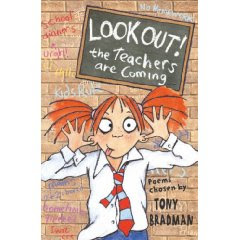
But I digress. Or do I? Because, I suppose, one of my problems with poetry is: what is it? No-one's ever actually explained that to me. In all my years at school, and then all my years back at school teaching children about poetry, no-one's ever given me a definition that really works for me and that covers every poem I have ever met.
My MacBook's onboard dictionary gives the following definition: "a piece of writing that partakes of the nature of both speech and song that is nearly always rhythmical, usually metaphorical, and often exhibits such formal elements as meter, rhyme, and stanzaic structure." I'm not sure I entirely understand that but, as far as I do, it doesn't describe every poem I've ever met.
Michael Rosen's attitude is, I think, quite healthy: when the accusation is levelled at him that he doesn't write proper poetry, rather than getting all defensive about it he says, fine, if you don't want to call it poetry call it something else. Call it 'bits' and 'stuff', if you like. As far as he's concerned, the important thing is writing it, not what you call it once it's been written.
I've been thinking about all this a bit lately, probably in the light of recent events - congratulations to Carol Ann Duffy, by the way, and if you should happen to read this, my daughter just borrowed The Tear Thief from the library and loved it - and it's occurred to me that perhaps one of the reasons poetry and I rub along together so uneasily is that when I was young I was taught to approach it in the wrong way. Poetry's often an emotional art form, yet so often the teaching surrounding poetry treats it as an intellectual exercise: What does the poet mean by...? What effect is the poet striving for when he...? What is the poem about? What does it mean?
If the poet wanted to "make a point", surely (s)he would write an essay or make a speech? And if a poem works, shouldn't we be able to enjoy it without necessarily getting all that deep analytical stuff? Shouldn't we, first and foremost, just enjoy the words? Shouldn't we spend years reading poetry to children in a way that enables them to enjoy it, before we ask them to pick it apart?
In some ways this is a new thought, and yet in many ways it's an old one for me. Thinking about this lately, I remembered a poem I wrote when I was eighteen and which, from memory, goes something like this:
Note to an English Teacher
A poem
Is like a hamster
Small
(Unless it is a long poem
In which case
It is like a large hamster)
And lively
(Unless it is a dull poem
In which case
It is like a sleepy hamster)
Admittedly
A poem has no fur
But it has a life
A life given it by the poet
Who is to the poem
As God to the hamster
But perhaps
The most remarkable similarity is
That you can take a poem apart
Dissect it
And analyse it
Although
On putting it back together, you find that
Like a hamster in the same situation
It does not work
Half as well as it used to
I submitted that for the school magazine, but the teacher in charge rejected it on the grounds, I was told by another pupil, that it had no literary merit.
I just don't think she understood it...
Note to an English Teacher © John Dougherty 1982 & 2009
Blog: An Awfully Big Blog Adventure (Login to Add to MyJacketFlap)
JacketFlap tags: James Joyce, John Dougherty, Dubliners, English lessons, internal writing, Add a tag
A-Level English was a long time ago, and I don’t remember an awful lot of what was said in class about our set texts. I remember our completely missing a very rude bit in Hamlet - it only dawned on me some years later that Shakespeare had smuggled an actual naughty sweary word into an exchange between the prince and Ophelia - and I recall several conversations about A Journey to the Western Isles of Scotland and The Journal of a Tour to the Hebrides being possibly the most boring thing any of us, including our teacher, had ever read. I also remember our wondering how Johnson had acquired such a reputation as a great wit when he clearly wasn’t very funny at all:
Johnson: I’ve got the best bed!
Boswell: If you’ve got the best bed, you must admit that I’ve got the best bedposts!
Johnson: Well, if you have the best posts, we shall have you tied to one of them and whipped!
Brought the house down in 1773, apparently. Maybe it was all in the delivery.
Anyway, one throwaway remark which has stuck in my head was our teacher’s explanation of why Joyce, in Dubliners, had included in his character description of Mr James Duffy, protagonist of A Painful Case, the following line:
“He had an odd autobiographical habit which led him to compose in his mind from time to time a short sentence about himself containing a subject in the third person and a predicate in the past tense.”
Miss’s explanation for this was that it was to round out and press home the fact that Mr Duffy was a bit of a weirdo. I mean, it’s clearly a very bizarre practice. What kind of a strange potato must he have been to do that sort of thing?
I remember keeping my mouth firmly closed and looking down at the desk, not wanting to catch her eye or draw attention to myself, because there in my head was burning the thought: “I do that!”
Now, I was well aware that I was a bit of a weirdo, or at least that I’d never quite fitted in at my school. Still, this particular foible didn’t really seem to me to be such a strange habit - certainly not strange enough to be included in a character sketch simply to highlight weirdness. But this was clearly the Official Explanation, and thus all the explanation I was going to get. And so - as with Hamlet and his smuggled sweary - for me it would be years before any further light was shed on this particular issue.
It was only a year or two back, during an exchange on the Scattered Authors’ Society’s discussion group, that I realised: this is actually quite normal. At least, from what others were saying, it seems to be normal among published authors, and so - I assume - it’s probably quite normal among unpublished authors, and quite possibly among people who have never written a book and have no particular desire to. Quite a few of us seem to have little writers sitting in our heads who take details of not just our own lives but also things we observe or hear about, and - in the words of one of Jordan’s managers - write it into book words. Having said that, I don’t often do the full sentences in my head any more. Descriptive words and clauses, yes, and other sentence fragments, but gone - for the most part - are the full sentences containing a subject in the third person and a predicate in the past tense; and I think the reason I don’t compose entire sentences internally is that now I compose them onscreen, and not in isolation but as part of something.
Which brings me back to a thought I had not long after our teacher told us that Joyce had given Mr Duffy this habit to show what a weirdo he was, which was: how did Joyce know that some people do this, unless it was something he did - or had done - himself?
Perhaps in Mr James Duffy, Mr James Joyce had put something of his own character. Or perhaps what was being highlighted was not Mr Duffy’s oddness, but the wastedness of his life: here was a man with a head full of sentences, who never wrote them down - and who never moved beyond sentences about himself.PS - I'm off to London in a few minutes; I'll be running in this year's London Marathon on Sunday. If you're going to watch, do keep a look out for me and cheer me on - I'll be wearing a green Stroud vest with a red and a blue stripe.
And if anyone would like to sponsor me, you can go to http://www.justgiving.com/johndougherty.
Blog: An Awfully Big Blog Adventure (Login to Add to MyJacketFlap)
JacketFlap tags: Jack Slater and the Whisper of Doom, double meanings, writing, words, John Dougherty, Add a tag
We had a science teacher at our secondary school who, on this date every year, would send some hapless first year to one of his colleagues with a request for a long stand. Or, occasionally, a big weight.
Even then, I always thought the 'long stand' was the better gag (not much better, but that was about as sophisticated as humour got at our school). After all, you wouldn't normally talk about 'a big wait'; it would be a long wait, wouldn't it? But of course if he'd requested a long wait, a child who'd been warned about the 'long stand' prank might make the connection.
I've been thinking lately about how it's on this sort of care with words, and this sort of awareness of the meanings of words, that good writing often rests. Probably it's particularly on my mind at the moment because I've been going through the proofs for my next book, Jack Slater and the Whisper of Doom, and one of the things to be aware of - at this stage at least as much as any other - is that sometimes a phrase which carries your meaning perfectly adequately can also carry another meaning. It's not enough to think, "Does this say what I want it to?" - there should also be a small part of the writer's brain asking, "Does this say anything I don't want it to?"
My son was recently reading a book in which a character - in a environment very familiar to him - is looking for somewhere to hide. There are a lot of short, sharp sentences to emphasise the urgency of the situation - "His enemy was getting closer. He looked round," that sort of thing - and then comes the sentence, "A great oak tree grew in the corner of the field." Reading on, it's fairly clear that the writer means that there was a great oak tree in the corner of the field that had been growing there for some years and which was still alive and therefore growing; but when I read the sentence, it caused me to stumble internally, because for a moment I wondered if the writer might mean that as the character watched, a tree began to grow and in a matter of seconds was very large.
Some of you may think I'm just being pedantic - and you wouldn't be the first - but to my mind, pedantry's a much underrated pastime; and in my defence, there were a number of factors that made this a not entirely unreasonable supposition:
- the story was a fantasy, set in a fantasy land, and magical things were already happening in the scene
- the short, sharp sentences were setting me up to expect events - x happened, then y happened, then w happened (surprising everyone who was expecting z next) - rather than description
- since the character was in a familiar environment, looking for somewhere to hide, I'd have expected him to know that the tree was there; being told 'he looked round' and then 'a tree grew', rather than 'he saw the tree' threw me a bit
So for me, there really is a point to pedantry. It helps to keep us sharp; it helps to make us think about the words we use and the potential, as well as actual, meanings they carry. And while no-one will love you for being pedantic all the time, we writers really ought to make sure we're in touch with our own inner pedants - at least while we're at our desks.
I'm going to leave you with one more sign; one I snapped last year when I was in Dublin for the Children's Books Ireland festival. I have no idea whether the owner was aware of the potential double meaning, but it's provided at least one dieting friend with a bit of focus.
Blog: An Awfully Big Blog Adventure (Login to Add to MyJacketFlap)
JacketFlap tags: school visits, John Dougherty, Add a tag
 Like Damian - and unlike Dianne - I've been doing a lot of school visits over the last week or two, and thoroughly enjoying myself. The schools I've visited this time round, I should say, have been thoroughly well-prepared and I've had a lot of fun talking and performing to groups of very enthusiastic and involved children.
Like Damian - and unlike Dianne - I've been doing a lot of school visits over the last week or two, and thoroughly enjoying myself. The schools I've visited this time round, I should say, have been thoroughly well-prepared and I've had a lot of fun talking and performing to groups of very enthusiastic and involved children.
That said, my experiences over the last few years have qualified me to add a few more dos and don'ts to Damian's list...
Firstly, do remember to pay your visiting author. I haven't had too much trouble over this, but there was the time I called a school to check that they'd got my invoice, as it had been a few months now and I still hadn't been paid... to be told, "Oh, we thought the bookshop who organised the event would pay, so when we got your invoice we just ignored it."
Never ignore the invoice. Never. Query it, by all means, but never just ignore it.
Secondly, almost as important as getting the author's name right is getting his or her profession right. It's immensely irritating to find that the teachers are expecting a 'storyteller'. It's not the same thing. Fortunately, the children won't be expecting a storyteller, because if the school's so disorganised that the literacy co-ordinator books an author and then tells her colleagues she's booked a storyteller, the teachers are unlikely to have thought to tell the children anything at all.
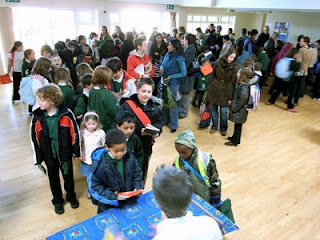 Thirdly, if the children are enthused and inspired by the author visit, some of them will need a focus for that enthusiasm and inspiration, so do promote the end-of-day book-signing. You may be surprised by some of the children who are most keen to get their signed copy.
Thirdly, if the children are enthused and inspired by the author visit, some of them will need a focus for that enthusiasm and inspiration, so do promote the end-of-day book-signing. You may be surprised by some of the children who are most keen to get their signed copy.All that said, though - it does work both ways. I've heard so many authors complain - justifiably - about ill-treatment at the hands of schools, that it rather took me by surprise when a teacher who'd booked me for an event this week took a minute for a little moan about some of the authors she'd worked with. One, apparently, rejected everything she was offered for lunch, so that something special had to be made for her, and needed constant attention throughout the day. Another followed a stream of emails with a forty-five minute phone call about her requirements for the visit.
When it comes down to it, I suppose - at the risk of sounding middle-aged - it's simply a question of manners, on both sides. Whether you're an author or a teacher, think about the needs of the other party in the agreement. And remember that the main beneficiaries of any author visit to a school should be the children - and this is most likely to happen if the author and the school treat each other with respect and courtesy.
Blog: An Awfully Big Blog Adventure (Login to Add to MyJacketFlap)
JacketFlap tags: classic books, Children's Books, John Dougherty, Add a tag
 Wouldn't it be nice to write a classic of children's literature?
Wouldn't it be nice to write a classic of children's literature?
Well, yes, of course it would. You know that. I know that. Those people who, on discovering you write for children, chuckle, 'Ah, the next JK Rowling, eh?' know that. The question, of course, is: how do you do it?
Actually, even before you ask how to write one you have to define what we mean by 'a classic'. My MacBook's onboard dictionary tells me that it's 'a work of art of recognised and established value'. I suppose on that basis I could argue all my books are classics: their value has long been both recognised and established as £3.99 (well, except for Bansi O'Hara and the Bloodline Prophecy, which is £5.99). I don't think that's quite what the dictionary means, though.
Wikipedia takes an interesting approach; its list of children's classics is defined as 'A list of the most important children's books, which were published at least 90 years ago, and were written for children and/or are still enjoyed by children today'. The 90-year limit suggests the author of this sentence believes either that a book has to stand the test of time before it can be considered a classic, or that classics can only be written by dead people; assuming it's the first, I think perhaps (s)he has a point. I personally think it's highly likely that some at least of the Harry Potter series, for instance, will come to be considered classics, but I think it's too early to start calling them that yet. The point that a book doesn't have to have been written for children to be a children's classic is a good one, too.
I wonder if we need to go back as far as 90 years to find classics, though. What about, say, CS Lewis's Narnia stories? They're over 50 years old, and still in print and loved by children. I'd like to think they qualify for classic status. I suppose by those criteria you'd have to count the Reverend W Awdry's Railway Series as classics, too. And the Famous Five, for that matter.
My musing on this point was inspired by the fact that I've recently been reading Alice's Adventures In Wonderland (one of the obvious classics) to my daughter for her bedtime story (although she's currently taking a break from Alice for a quick whizz through one of the Rainbow Fairies books). She's loving Alice; but one of the interesting things I've noticed is that she's clearly not getting all of it; and in fact, I'm spotting quite a bit that I didn't get when I read it as a child. Winnie-the-Pooh, likewise. There's a lot in the stories of the Bear of Very Little Brain that is actually adult-level (or at least teen-level) humour; when, in my teaching days, I read it to my Year 3 class they completely missed a lot of what, to me, were the funniest bits.
Which makes me wonder: to write a classic, do you actually have to appeal to adults, too? Does there have to be something in there to make parents want to share it with their children - or perhaps to make children keep coming back to it as they grow up, as I did with the Narnia stories? But then - and I speak as one whose son was utterly obsessed with the wretched Thomas between ages 2 and 6 - wouldn't that disqualify the Railway Series (except in the eyes of ardent train-spotters)?
Perhaps there's no one answer. Perhaps there's a certain amount of serendipity involved for the books that rise to the top and stay there to become classics, just as we all know of books that we think are fantastically good but that somehow never got noticed. Maybe many of us who post on here have written books that have already become recognised classics in another universe even though, in this one, they are barely managing to stay in print. It would be nice to think so.
It'll be interesting to see what thoughtful comments members of the ABBA community have to make on the theme of what makes a children's classic. It'll also be interesting to see who is first to get the reference in the title to this piece...
Oh - and: Happy Valentine's Day, book lovers.
Blog: An Awfully Big Blog Adventure (Login to Add to MyJacketFlap)
JacketFlap tags: Happy New Year, getting down to writing, John Dougherty, sheds, Add a tag
 New Year’s Eve. A time to reflect upon the year that’s gone; a day to hope for the year ahead. It’s only fitting that the final Awfully Big Blog Adventure entry of 2008 should be one which draws lessons from the events of the last twelve months; which looks at the highs and lows of the year in children’s books; which makes cautious but perceptive predictions about the future; and which concludes with wise wishes about where we might find ourselves on December 31st 2009.
New Year’s Eve. A time to reflect upon the year that’s gone; a day to hope for the year ahead. It’s only fitting that the final Awfully Big Blog Adventure entry of 2008 should be one which draws lessons from the events of the last twelve months; which looks at the highs and lows of the year in children’s books; which makes cautious but perceptive predictions about the future; and which concludes with wise wishes about where we might find ourselves on December 31st 2009.
Instead, you’ve got a bloke who’s excited about his new shed.
Well, I say ‘shed’; actually, it’s more like an extra room at the bottom of the garden (which, I suppose, is why the firm that supplied it is called Extra Rooms Ltd. A little plug there; but they deserve it). Really, it’s my new writing room, which I’ve been promising myself for ages - I first mentioned it on these pages back in August. And now it’s finally here! The long-awaited much-dreamed-of writing room is made flesh (well, wood actually. A shed made of flesh would be pretty yukky, don’t you think? Rather over-extended the metaphor there. Sorry).
Anyway, the point is that now I finally have my retreat, my little place all of my own where I can give my imagination free rein, uninterrupted by postmen and double-glazing cold callers, unable to distract myself with emails and the internet. Which means that this is where it gets scary.
You see, I’ve been telling myself that I’ll be a better writer when I have my writing room; that, free from distraction and able to truly concentrate, I’ll find the words pouring out and the ideas flowing. And, of course, when I’m in the house and sighing with exasperation at yet another phone call, or trudging down to the local library in search of that elusive corner of peace and quiet, it’s easy to tell myself that. But what if it isn’t true? What if the problem is actually me, and not my environment at all? What if I’ve just spent more than I earn from writing in the average year on something that will make no difference at all to my output? What if I am really just a very slow and lazy writer???
Pshaw! (Is that really how you spell that? It looks odd written down. Ah, well; no matter). Pshaw! I say again. Away with such negative and defeatist thoughts. Tomorrow dawns a new year and with it, for me, a new way of writing - or, at least, one with fewer excuses for not getting any writing done. I’ll let you know how it works out; but actually I’m quite hopeful. And excited. Which is just how it should be at the turn of the year.
Happy New Year, everyone; and to all the writers among us, old and young, rich and poor, published and unpublished: in 2009 may your imagination rise towards new horizons like the balloon of Oz, may your ideas multiply like the kin of Hazel, and may the words flow like the rivers of Narnia after the thaw.
Blog: An Awfully Big Blog Adventure (Login to Add to MyJacketFlap)
JacketFlap tags: reading, schools, John Dougherty, Add a tag
 I was in a lovely modern school yesterday that has centralised heating.
I was in a lovely modern school yesterday that has centralised heating.
No, I don’t mean ‘central heating’, I mean ‘centralised heating’. The school’s heating system is remotely controlled from local authority headquarters.
I’m sure this seemed like a great idea to whichever idiot thought of it. Give the heating controls to the people who are responsible for the heating budget, and they can make sure nobody wastes precious energy or sets the radiators to an unauthorised temperature.
Of course, the actual result is that when the building is so warm that the people who work there are physically uncomfortable, there’s not a thing they can do about it.
“Hello? Local authority? Could you turn our heating down, please? It’s too hot.”
“Not according to the thermostat reading. It’s well within the limits of acceptable temperature as specified by council guidelines.”
“But it’s too hot! I mean, it feels too hot!”
“Hmmm... no, it’s definitely okay. If it gets too hot we’ll turn it down.”
“But it’s too hot now!”
“No, not according to the readout...”
Sadly, this sort of madness has been standard in the world of education for years. Although it’s rarely affected the physical environment in quite this way, it has had a potentially devastating effect on the reading environment. Whitehall bean-counters centrally control the teaching of literacy, prescribing from afar approaches that may make sense from the safety of an office in the Department for Ridiculous Ideas but seem completely crazy to those trying to apply them to the education of real children in real schools.
On Sunday evening, for instance, I met a trainee teacher who told me that she has to teach seven-year-olds to talk about ‘temporal connectives’. Seven-year-olds! Why on earth should any child of that age need to know what temporal connectives are (and for those of you who, like me, might have imagined them to be eerily glowing things used by the Doctor to repair his Tardis: it means words like ‘before’ and ‘when’)? Like most sensible professionals working with children of that age, she’d rather be giving them opportunities to play imaginatively and extend their capacity for creativity, not to mention reading them stories that will make them stare in wonder or giggle with surprise. Someone who has never met them, however, has decided what they need; and what they need, apparently, is to be taught to parrot useless phrases in some grotesque parody of premature linguistic analysis.
Where once teachers would reward their classes by reading them stories, now children must reward their teacher for reading them stories or even just fragments of stories: by analysing the texts, by counting the fullstops or replacing the describing words or any one of dozens of other exercises which might be of some use when a child is developmentally ready for this sort of intellectual dissection but which are worse than useless to young children who need first and foremost to develop their imaginations and their love of reading. And if, every time a child - especially one from a background where stories and books are not loved and valued for their own sakes - is read a story, he is then expected to produce a piece of work which is beyond him or for which he can’t see the point, he will quickly learn to see stories not as sources of pleasure but as instruments of torture.
Like centralised heating, centralised reading strategies are a lousy idea. Our children don’t need a primary education system which places the controls in the hands of nameless strangers who have never met them and have no idea of who they are. They need an education in which the development of the love of reading is placed at the centre - and in which the people working in the classroom are the ones with their hands on the controls.
Blog: Happy Healthy Hip Parenting (Login to Add to MyJacketFlap)
JacketFlap tags: picture books, boys, booklist, male, Taro Gomi, first fiction, jack russell, the team, jack russell, the team, first fiction, Taro Gomi, male, Add a tag
Dan from Dan's Angel:
A Detective's Guide to the Language of Paintings

Taro Gomi's nameless son from I Lost My Dad!

Kali from Kali and the Rat Snake

Jonathan from The Key to My Heart

Mustafa from My Father's Shop

Paul from Paul Needs Specs

Paul and Sebastian

Unnamed hero from Samsara Dog

Sebastian from Sebastian's Roller Skates

Norman from The Short and Incredibly Happy Life of Riley

Sosu from Sosu's Call

Tibili from Tibili:
The Little Boy Who Didn't Want to Go to School

Troy from Troy Thompson's Excellent Peotry Book

Eddie from What Eddie Can Do

Unnamed narrator from What's Going On?

Wilfrid from Wilfrid Gordon McDonald Partridge

Little Sala from Brush

Marc from Marc Just Couldn't Sleep

Kevin from:
Kevin Spends the Night
Kevin Takes a Trip
Kevin Goes to School
Kevin Goes to the Hospital




Harvey from The Team series:
The Soccer Machine
Top of the League
Soccer Camp
Superteam
Blog: Happy Healthy Hip Parenting (Login to Add to MyJacketFlap)
JacketFlap tags: picture books, new zealand, belgium, fairy tales, authors, australia, illustrators, england, early readers, south korea, toddler tales, fall 2008, jack russell, jack russell, early readers, toddler tales, england, south korea, fall 2008, illustrators, belgium, Add a tag
Authors for this forthcoming season are Jucy Horacek, Vivian French, Colin Thompson, Terry Denton, Joy Cowley, Hyun Young Lee, Joan Lennon, Sally & Darrel Odgers, Emanuelle Eekhout, and Beth Norling. Gavin Bishop and Jackie Morris join us as new illustrators we're publishing and countries represented include our first book from New Zealand, along with Australia, England, South Korea, and Belgium.
More details to come...





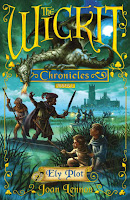
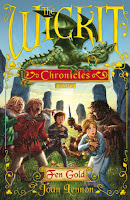
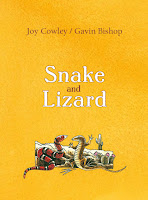
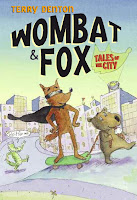
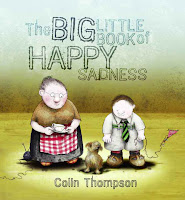
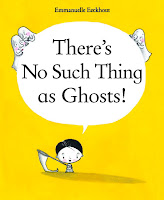
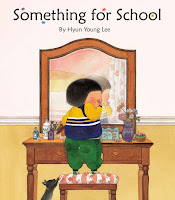

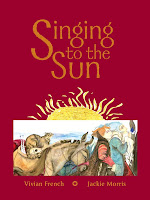
THANKS for posting this, John. I hadn't seen Mitch Benn doing this yet and am now sitting here with tears in my eyes and they aren't all of laughter.
Brilliant! I love some of the rhymes, like "Bagpuss" with "Absolutely Fabulous". Thanks, John.